Amendments to the process for reviewing and remaking positive PBAC listing recommendations that have not been accepted by applicants
Page last updated: 15 February 2021
The Pharmaceutical Benefits Advisory Committee (PBAC) is a statutory committee established under the National Health Act 1953. The PBAC is required by law to make recommendations to the Minister “as to the drugs and medicinal preparations which it considers should be made available as pharmaceutical benefits” on the Pharmaceutical Benefits Scheme (PBS) and to advise the Minister upon any other matter concerning the operation of the PBS referred to it by the Minister.
The PBAC receives secretariat and administrative support from the Department of Health (the Department). The Department supports a range of processes used by the PBAC to manage its business. A long-standing PBAC practice has been to re‑examine recommendations not accepted by applicants 2 and 5 years after making. This process generally saw PBAC note any unaccepted recommendations at 2 years and revoke unaccepted recommendations at 5 years.
The Minister for Health (the Minister) or the delegate makes decisions about listing new drugs on the PBS after receiving advice from the PBAC.
It is important that the PBS-listing decisions made by the Minister reflect contemporary PBAC advice.
The decision by the PBAC to re-examine its practices for reviewing PBS-listing recommendations not accepted by applicants recognises the increasing speed with which new evidence and new technologies are becoming available. This means that a recommendation based on the best available information 2 years previously may no longer take account of the availability of new therapeutic agents or new evidence or other changes in circumstances.
In the same way, an applicant whose application for subsidy has not been recommended by the PBAC at a particular point-in-time is able to provide updated evidence in support of a revised application.
The Therapeutic Goods Administration (TGA) has also moved towards defining shorter periods of time in which particular decisions remain valid. For example, Orphan Drug designations now lapse after a specified time and TGA priority review and provisional determinations remain in force for a period of 6 months from the initial effective date.
In March 2020, the PBAC discussed a revised process for reviewing positive PBS-listing recommendations that have not been accepted by applicants and requested the Department undertake further consultations. The Department received written feedback from Medicines Australia and hosted an information session with industry participants in August 2020. In response to feedback provided, the revised process (PDF 407KB) and answers to frequently asked questions (PDF 156KB) - (Word 24KB) have been developed.
Under the revised process, PBS-listing recommendations that have not been accepted by the applicant will be reviewed by the PBAC 2 years after the initial recommendation was made. Engagement with applicants will remain a key feature of the new process, with applicants notified of the upcoming review early in the cycle leading up to the PBAC meeting, and asked to provide a response for the consideration of the PBAC, either confirming that they have chosen not to proceed with the listing process (in which case the recommendation will be ceased) or requesting that the recommendation be retained and why, as well as providing a date for when they intend to proceed with listing). The response should also assure the PBAC that data used in the assessment of effectiveness and cost when the initial recommendation was made remain unchanged, and that the assessment of cost effectiveness remains valid at the time of review (i.e. 2 years later). As with the current process, the PBAC may choose to continue with its initial recommendation, or to make a new recommendation.
If an applicant notifies the Department at any time following a positive recommendation that they do not wish to proceed with the listing process, the applicant’s written notification will be provided to the PBAC at its next meeting at which time the positive recommendation will be formally rescinded.
The Medicine Status Website will be updated according to any final outcomes and status of confirmation, in the usual process and timelines.
This process will continue to only apply to PBS-listing recommendations that have not been accepted by applicants. The PBAC considers these changes will improve timely patient access to medicines.
The PBAC Chair, Professor Andrew Wilson, has noted that a PBAC review, with applicant input, of PBS-listing recommendations that have not been accepted by the applicant, at an earlier time following recommendation could assist these recommendations progressing to PBS subsidy.
The principle that applies is that it is good practice to have some time limit around recommendations. At the moment, that is effectively five years and that doesn't make sense. The PBAC should be able to reopen and relook at recommendations.



